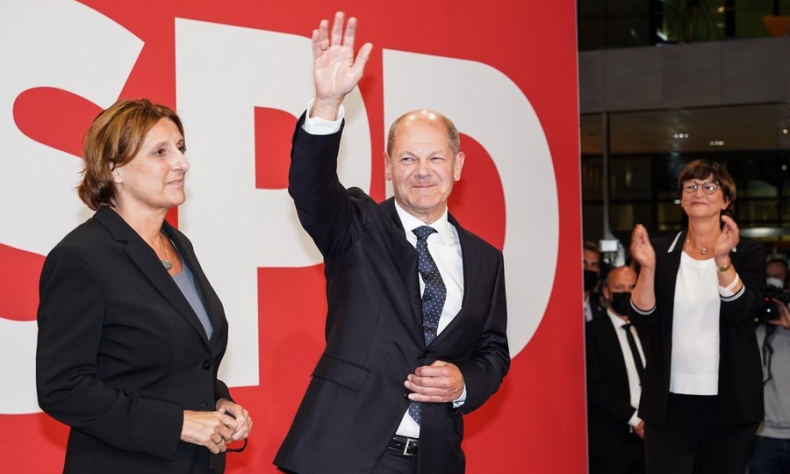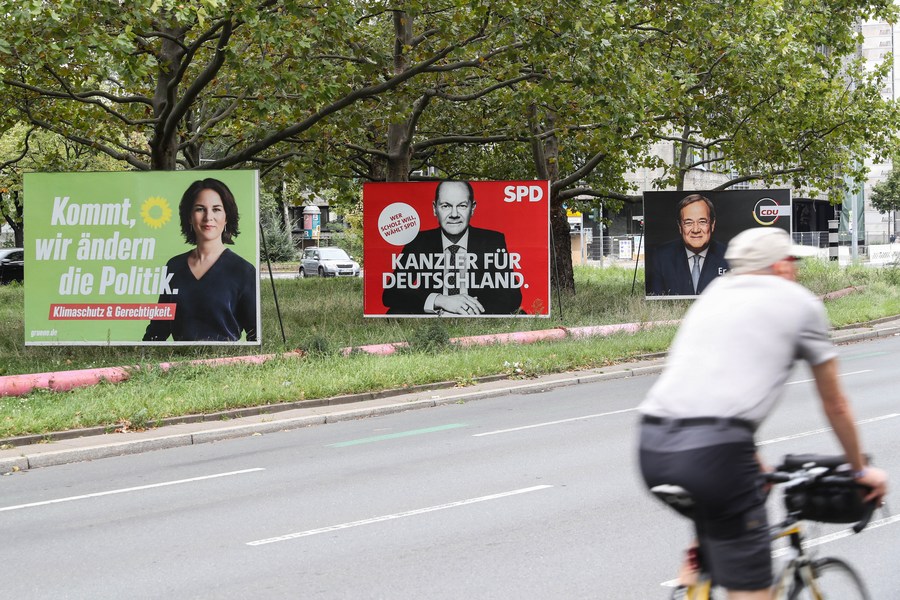The Legacy of Merkel and a New Era of Germany

It is accordingly ‘who’ the eventual coalition will consist of that will determine the path that Germany takes.
Angela Merkel will go down as the greatest female leader of the 21st century so far. Leaving behind a 16-year legacy, Merkel has spearheaded Germany as a leader in Europe and the world. She has navigated her country through the 2008-2009 financial crisis and a refugee crisis, while sustaining a foreign policy built on values, pragmatism and cautious reason when navigating several great power conflicts. It is hard to think of any leader who has been so instrumental or iconic in post-war Germany.
After a decade and a half of the Christian Democratic Union (CDU), a larger portion of the German public opted instead for the Social Democratic Party (SPD) led by Olaf Scholz, its centre-left alternative. However, unlike in the U.K. or U.S. that have first-past-the-post electoral systems, Germany’s proportional electoral system produces no “clear cut” winner. Instead parties gain a proportion of seats in accordance with the vote share they received. This means that while one party may be the biggest in the Bundestag, it does not have a majority of seats to govern on its own and must instead negotiate a coalition to share power with other parties. Indeed, the SPD only received 25% of the vote themselves.
In forming a coalition, the leading party must align itself with a number of minor parties. This requires a long period of negotiation and compromise. This is expected to take until the end of the year. It is accordingly “who” the eventual coalition will consist of that will determine the path that Germany takes.

The SPD will need to choose a number of partners, the most likely candidates being the centrist Free Democratic Party (FDP) and the Green Party. It is also possible for the SPD to share power in a “grand coalition” with the CDU, but this seems unlikely. All parties have also ruled out any coalition participation with the far-right Alternative for Deutschland (AfD) group.
The makeup of this coalition will influence Germany’s foreign policy accordingly. It will require at least three parties in order to attain a majority of seats. Merkel’s government was known for its balanced and pragmatic approach towards China. It is expected that this approach will not change drastically under the SPD, owing to China’s importance to Germany as an economic partner.
However, the balance of the new coalition could have some implications. The FDP is a more business centric party, and would make the coalition more readily balanced if they are the third member within it. They would like to dominate Germany’s economic policy. Given most of the other candidates are unfeasible, one could assume an SPD-Green-FDP alliance is the most probable and logical outcome.
It is ultimately a new era for Germany, and the world watches with eagerness to see how things develop as the door closes on one of the most iconic periods of its post-war existence.
 Facebook
Facebook
 Twitter
Twitter
 Linkedin
Linkedin
 Google +
Google +







